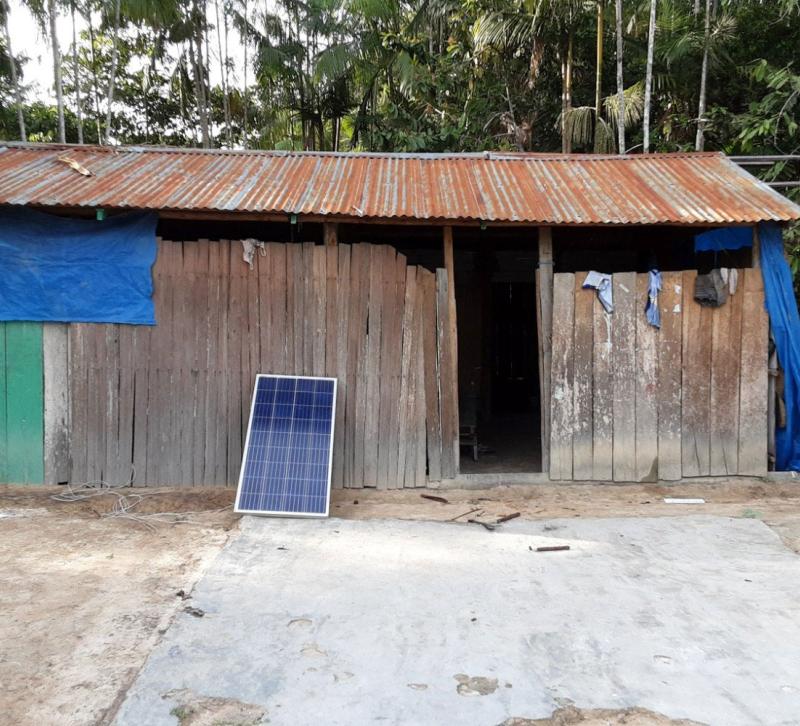
Research interests
Environment, society and development in Latin America; global development goals and sustainability discourses; expert knowledge and non-modern knowledge systems; interdisciplinary approaches to Value, values and valuation.
Laura Rival
Laura Rival works on a number of interrelated projects that together illustrate her distinctive approach to the Anthropology of Nature, Society and Development.
Her empirically grounded, theoretically oriented and policy-relevant research aims to renew our thinking about the relationship between environment and society. Empirically, her work is grounded in ethnographic research with the Huaorani (Ecuadorian Amazon), inter-disciplinary research with the Makushi (central Guyana), and policy-oriented research with a number of Latin American indigenous and peasant communities, both in Central and South America. Theoretically, she has engaged critically with a range of deterministic assumptions associated with modernist ideologies , as well as with various theories that reify the nature/ culture divide, or perpetuate dubious interpretations of indigenous and peasant livelihoods and their historical dynamics. She has also contributed to political economic analyses of development policies, as well as to discussions surrounding policy instruments aimed at reconciling human development and the conservation of biological and cultural diversity.
Her current research builds on this expertise to address burning issues of development in the face of severe environmental degradation and accelerating climate change.
Laura Rival teaches the Anthropology Foundation Course for the MPhil in Development Studies, as well as contributing to the Core Course and research methods training. For the second-year of the MPhil in Development Studies, she teaches an option on sustainable development while also working on developing, with several ODID colleagues, new courses on climate change and international development.
For the Institute of Social and Cultural Anthropology, she contributes to the ethnography course on lowland South America and the option course on environmental anthropology. She also teaches and supervises for the Institute of Human Sciences.
-
Books and monographs( ) Huaorani transformations in 21st century Ecuador. Treks into the future of time . , Tucson: University of Arizona Press( ) Transformaciones Huaoranis. Frontera, Cultura y Tensión . , Quito: Abya Yala( ) Governing the Provision of Ecosystem Services . , Dordrecht: Springer( ) Trekking Through History - The Huaorani of Amazonian Ecuador . , Columbia University Press 256 pps( ) Beyond the Visible and the Material: The Amerindianization of Society in the Work of Peter Riviere . , Oxford: Oxford University Press( ) The Social Life of Trees: Anthropological Perspectives on Tree Symbolism . , Oxford: Berg pps 315
-
Journal articles and special issues( ) Revitalizing while transmitting: Giving birth with AMUPAKIN’s traditional Kichwa midwives in Ecuador’s Napo region . Tipití: Journal of the Society for the Anthropology of Lowland South America 20(2)( ) Pedagogies for the Future: Ethnographic Reflections on Two Latin American Learning Journeys . Oxford Review of Education 49(4) 555-568( ) Anthropocene and the dawn of a planetary civilization . Anthropology Today 37 (6) 13-16( ) Arguing for system change in the Anthropocene . St Antony’s International Review 15 (2) 109-19( ) GDAT debate 2016: Attention to infrastructure offers a welcome reconfiguration of anthropological approaches to the political . Critique of Anthropology 37 1-50( ) Quegoki Cönwi: Resiliencia huaorani resilience y el futuro de la biósfera Yasuní. . Bulletin de la Société Suisse des Américanistes 76 183-96( ) Huaorani peace. Cultural continuity and negotiated alterity in the Ecuadorian Amazon . Common Knowledge 21 (2) 270-304( ) New trends confronting old structures or old threats frustrating new hopes? ECLAC’s compacts for equality. . Development and Change 46 (4) 961-78( ) Encountering nature through fieldwork experiments: Indigenous knowledge, local creativity and modes of reasoning . Journal of the Royal Anthropological Institute 20 (2) 218-36( ) From Carbon Projects to Better Land-Use Planning: Three Latin American Initiatives . Ecology and Society 18 (3)( ) Payments for Ecosystem Services and the Fatal Attraction of Win-win Solutions . Conservation Letters 6 (4) 274-9( ) Between Markets and Hierarchies: The Challenge of Governing Ecosystem Services . Ecosystem Services 1(1) 93-100( ) Sustainable Development through Policy Integration in Latin America: A Comparative Approach . Development 55 (1) 63-70( ) Ecuador's Yasuni-ITT Initiative: The Old and New Values of Petroleum . Ecological Economics 70 358-65( ) Domestication and Diversity in Manioc (Manihot esculenta Crantz ssp. esculenta, Euphorbiaceae) . Current Anthropology 49(6) pp 1119-28( ) Amazonian Historical Ecologies . Journal of the Royal Anthropological Institute 12(s1) s79-s94( ) The Meanings of Forest Governance in Esmeraldas, Ecuador . Oxford Development Studies 31(4) 479-501( ) Society, Culture and Environmental Adaptability in Central and South America . Reviews in Anthropology 30 375-86( ) Perception and Management of Cassava (Manihot esculenta Crantz) Diversity Among Makushi Amerindians of Guyana (South America) . The Journal of Ethnobiology 20(2) 239-65( ) The Right to Life, or the Right to a Way of Life? . Resurgence 198(10-12)( ) Androgynous Parents and Guest Children: The Huaorani Couvade (Curl Essay Prize) . Journal of the Royal Anthropological Institute 5(4) 619-42( ) Sex and Sociality: Comparative Ethnographies of Sexual Objectification . Theory, Culture and Society (Special Issue on Love, Eroticism and Sexuality) 15(3-4) 294-321( ) Oil and Sustainable Development in the Latin American Humid Tropics . Anthropology Today 13(6) 1-3
-
Chapters( ) ‘Mindful’ techniques of the body in contemporary Amazonia: some implications for anthropological and archaeological research . In Lionel Simon and Quentin Letesson Ontologies in the Making: Anthropological and Archaeological Perspectives , Presses Universitaires de Louvain( ) An anthropological lens on property and access: Gudeman’s dialectics of community and market . In F Girard, C Frison The Commons, Plant Breeding and Agricultural Research: Challenges for Food Security and Agrobiodiversity , Routledge( ) Anthropology and the nature-society-development nexus . In M Brightman and J Lewis The Anthropology of Sustainability: Beyond development and progress , Palgrave( ) Anthropology and the nature-society-development nexus . In Marc Brightman, Jerome Lewis Anthropological visions of sustainable futures , London: Routledge( ) Ecosystem Services and Environmental Governance: Some Concluding Remarks . In R Muradian, L Rival Governing the Provision of Ecosystem Services , Dordrecht: Springer 465-472( ) Introduction: Governing the Provision of Ecosystem Services . In R Muradian, L Rival Governing the Provision of Ecosystem Services , Dordrecht: Springer 1-20( ) Biodiversity and Development . In R Fardon, J Gledhill The ASA Handbook of Social Anthropology , London: Sage 282-92( ) Planning Development Futures in the Ecuadorian Amazon: The Expanding Oil Frontier and the Yasuni-ITT Initiative . In A Bebbington Social conflict, Economic Development and Extractive Industry. Evidence from South America , London: Routledge( ) Old and New Carbon Values: Oil Development and Alternative Forms of Welath Making in the Ecuadorian Amazon . In R Acosta Making Sense of the Global: Anthropological Perspectives on Interconnections and Processes , Cambridge Scholars Publishing pp 40-62( ) What Sort of Anthropologist Was Paul Rivet? . In R Parkin, A de Sales Out of the Study, Into the Field: Ethnographic Theory and Practice in French Anthropology , Oxford: Berghahn Books 164-204( ) Comments on M Strathern's Oxford Amnesty Lecture 'Land - Tangible of Intangible Property' . In T Chester Land Rights: Oxford Amnesty Lectures 2005 , Oxford: Oxford University Press 39-46( ) Huaorani Ways of Naming Trees . In M Alexiades The Ethnobiology of Mobility, Displacement and Migration in Indigenous Lowland South America , Oxford: Berghahn Books pp 47-68( ) Domestication of Peach Palm (Bactris gasipaes Kunth): The role of Human Mobility and Migration . In M Alexiades The Ethnobiology of Mobility, Displacement and Migration in Indigenous Lowland South America , Oxford: Berghahn Books pp 117-40( ) The Resilience of Indigenous Intelligence . In K Hastrup The Question of Resilience: Social Responses to Climate Change , Copenhagen: The Royal Danish Academy of Sciences and Letters pp 293-313( ) Domesticating the Landscape, Producing Crops and Reproducing Society in Amazonia . In D Parkin and S Ulijaszek Convergence and Emergence: Towards a New Holistic Anthropology? , Oxford: Berghahn Books pp 72-90( ) Alliances for Sustainable Forest Management: Lessons from the Ecuadorian Choco . In M Ros-Tonen, H van den Hombergh and A Zoomers Partnerships in Sustainable Forest Resource Management: Learning from Latin America , Amsterdam: CEDLA pp 37-62( ) From Global Forest Governance to Privatised Social Forestry: Company-Community Partnerships in the Ecuadorian Choco . In MB Likosky Privatising Development: Transnational Law, Infrastructure and Human Rights , Brill Academic Publishing( ) Seed and Clone. A Preliminary Note on Manioc Domestication and its Implications for Symbolic and Social Analysis . In L Rival, N Whitehead Beyond the Visible and the Material: The Amerindianization of Society in the Work of Peter Riviere , Oxford: Oxford University Press pp 57-80( ) Forty Years of Amazonian Anthropology, the Contribution of Peter Riviere . In L Rival, N Whitehead Beyond the Visible and the Material: The Amerindianization of Society in the Work of Peter Riviere , Oxford: Oxford University Press pp 1-18( ) Trees and the Symbolism of Life in Indigenous Cosmologies . In D Posey Cultural and Spiritual Values of Biodiversity , UNEP pp 358-62( ) Marginality with a Difference: How the Huaorani Remain Autonomous, Preserve their Sharing Relations and Naturalize Outside Economic Powers . In M Biesele, P Schweitzer Hunters and Gatherers in the Modern World: Conflict, Resistance and Self-Determination , Providence, RI: Berghahn Books( ) Trees, from Symbols of Life and Regeneration to Political Artefacts . In L Rival The Social Life of Trees. Anthropological Perspectives on Tree Symbolism , Oxford: Berg pp 1-36( ) Domestication as a Historical and Symbolic Process: Wild Gardens and Cultivated Forests in the Ecuadorian Amazon . In W Balee Principles of Historical Ecology , New York: Columbia University Press pp 232-50( ) Preys at the Centre: Resistance and Marginality in Amazonia . In S Day, E Papataxiarchis, M Stewart Lilies of the Field: Marginal People who Live for the Moment , Boulder, CO: Westview Press pp 61-79
-
Working papers( ) Sustainable Development through Policy Integration in Latin America: A Comparative Approach . UNRISD Occasional Paper Seven, Social Dimensions of Green Economy and Sustainable Development , UNRISD( ) The Yasuni-ITT Initiative; Oil Development and Alternative Forms of Wealth Making in the Ecuadorian Amazon . QEH Working Paper 180
-
Encyclopedia entries( ) Introductory Essay on South American Hunters-and-Gatherers . In R Lee, R Daly The Cambridge Encylopedia of Hunters and Gatherers , Cambridge and New York: Cambridge University Press pp 77-85( ) Article on the Huaorani . In R Lee, R Daly The Cambridge Encyclopedia of Hunters and Gatherers , Cambridge and New York: Cambridge University Press 101-4( ) Introductory Essay on South American Hunters-and-Gatherers and The Huaorani . In R Lee, R Daly The Cambridge Encyclopedia of Hunters and Gatherers , Cambridge and New York: Cambridge University Press
-
Other publications( ) Claudia Andujar’s solidarity with the Yanomami people . The Lancet 398 July 31 379-80( ) How will temporary possessions make us happier? . In R Empson and L Bonilla Temporary Possessions. Theorizing the Contemporary( ) Environmental anthropology . In N Castree, M Hulme and JD Proctor Companion to Environmental Studies , Routledge( ) Comment (pp 21-22) on Trawick, Paul & Alf Hornborg, Revisiting the image of limited good. On sustainability, thermodynamics, and the illusion of creating wealth . Current Anthropology 56 (1) 1-27







